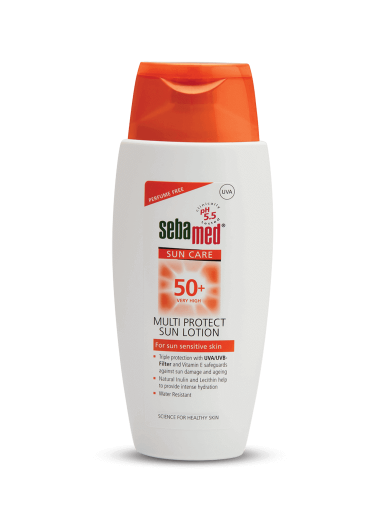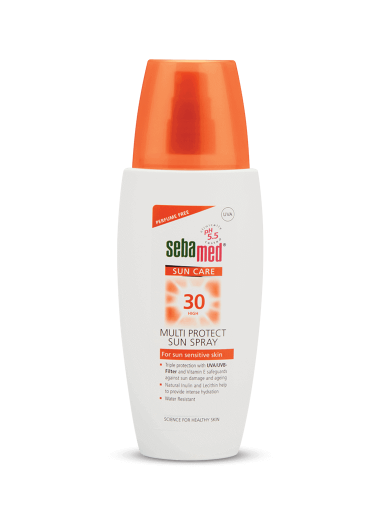SPF 30 vs 50: Which One Provides Better Sun Protection?
by Sebamed | Oct 26, 2023
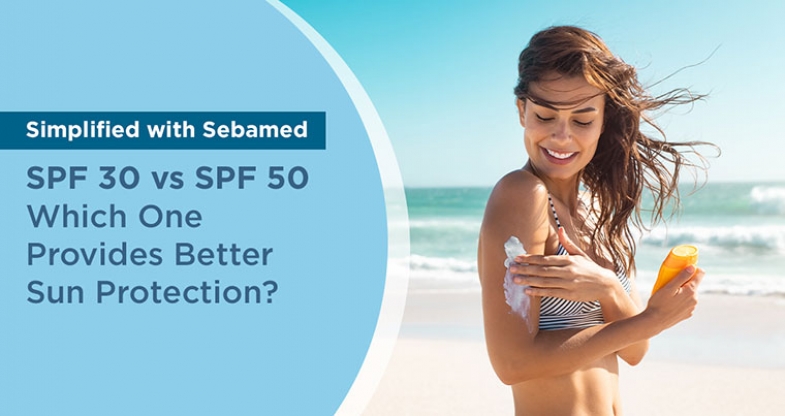
It can get confusing trying to choose the perfect sunscreen for yourself while being spoiled for choices. The ultimate debate of SPF 30 vs SPF 50 unravels more components and makes the choice even more difficult. From facts to myth busters to choosing the best SPF, here we're listing down the detailed overview of SPF to help you choose the best sun protection for your skin.

A sunscreen a day keeps the sun damage away
Index [hide]
- What is SPF?
- What Does the Number in SPF Mean?
- SPF 50: The Stronger Shield?
- SPF 30: The Adequate Protection?
- Myth Busting: Debunking Common Misconceptions About SPF
- How to Properly Use Sunscreen for Maximum Effectiveness?
- SPF 30 vs SPF 50: Which SPF is Right for You?
- Conclusion
- Product Mentioned in the Blog
What is SPF?
SPF stands for Sun Protection Factor. When we are out in the sun, we are exposed to its two harmful UV rays that are - UVA and UVB. The SPF of a sun protection product determines the level of UVB protection that the product offers.
What Does the Number in SPF Mean?
The number in SPF tells you how long you can stay out in the sun without getting burned. Usually, these UVB rays take 15 minutes to burn your skin. If you apply sunscreen with an SPF 15, it would take you 15 times longer to experience a sunburn. However, if you apply sunscreen with an SPF 50, it would take you 50 times longer to experience a sunburn.
SPF 50: The Stronger Shield?
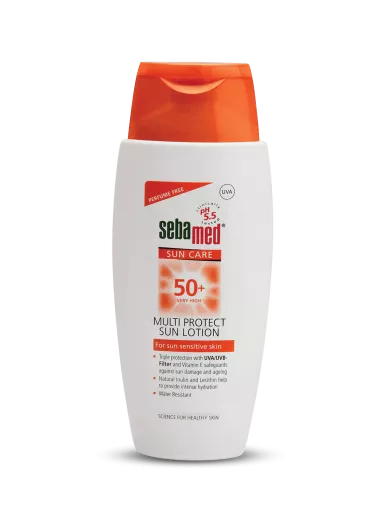
People often assume that sunscreen with a higher SPF provides better sun protection. This results in people using products with higher SPF value. But, that is often not the reality. Studies have shown that properly applied SPF 50 sunscreen blocks 98% of UVB rays; however, SPF 30 sunscreen blocks about 97% of UVB rays. It clearly shows that the difference between the protection provided by both sunscreens is negligible. So, calling SPF 50 the stronger shield does not hold true in its full capacity.
SPF 30: The Adequate Protection?
Since sunscreen with an SPF 30 blocks upto 97% of UVB rays, you can rely on it. In fact, many of the dermatologists recommend sunscreens between SPF 30 and SPF 50. But you must remember that SPF measures protection against UVB radiation only. It doesn’t reflect a product’s ability to protect from UVA rays that penetrate the skin deeper, thereby causing tanning, ageing, and sometimes leading to skin cancer. To ensure you are shielded from both UVA and UVB rays, choose a sunscreen that is labeled as ‘broad spectrum’. And your best bet would be going for a broad spectrum sunscreen with an SPF of at least 30.
Myth Busting: Debunking Common Misconceptions About SPF
Despite the importance that sunscreen holds these days, there are a lot of myths associated with them. Some of the common myths are listed as follows -
-
Every sunscreen is the same
The goal of every sunscreen is to provide sun protection to your skin. But each sunscreen works differently depending on your skin type, the ingredients of the product, the level of sun protection the product provides, and more.
-
Higher SPFs are better
People are often told that higher the number, higher the amount of sun protection. But this is not the case. An SPF 50 sunscreen blocks 97% of UVB rays while an SPF 100 sunscreen blocks 98% of UVB rays, a marginal difference. In fact, high SPF products come with significant health risks. The concentration of chemicals in high SPF sunscreen can cause more damage to your skin than the UVB rays.
-
Darker skin doesn’t require sunscreen
Melanin does offer some natural sun protection. However, people with a darker skin tone are equally prone to develop wrinkles, pigmentation, sunburns, and skin cancer.
-
Sunscreen is enough to provide adequate sun protection
Applying a sunscreen with adequate SPF is a great way to provide sun protection to your skin. But it isn’t enough. Even sunscreen needs to be reapplied again and again for sun protection. Apart from using sunscreen, carrying a scarf when going out, using sunglasses to protect your eyes, and wearing a hat for your hair play a great role to shield you from the sun.
How to Properly Apply Sunscreen for Maximum Effectiveness?
Application matters. Here are the steps that you must follow to properly apply your sunscreen.
1. Shake the sunscreen well before use to mix the particles of the product well.
2. Use a handful to cover your face and the body exposed to the sun.
3. Apply thoroughly.
4. Be careful while applying it around the eyes.
SPF 30 vs SPF 50: Which SPF is Right for You?
SPF 30 vs SPF 50 has been a long debate between consumers. Many people still prefer using sunscreen of higher SPF due to their assumption about high SPF products providing better sun protection. But choosing the right SPF for yourself depends on a lot of factors. If you spend most of the time indoors, you can use an SPF 20 sunscreen. But if you are constantly exposed to the sun, we recommend you to use at least SPF 30 sunscreen or higher. None of this would work if you forget to reapply your sunscreen after some time.

Choose the right sunscreen for beautiful skin
While choosing a sunscreen, you must choose a broad spectrum sunscreen with SPF 30 that provides protection from both UVA and UVB rays. The Sebamed Multi Protect Sunscreen comes with a UVA/UVB filter and Vitamin E shields against sun damage and ageing.
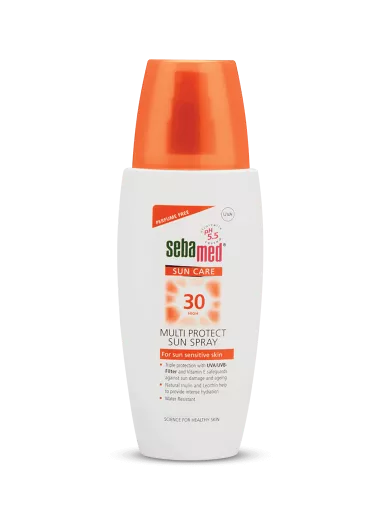
Triple protection with UVA/UVB-Filter for adequate sun protection
Conclusion
Although SPF is not enough to provide the ultimate sun protection. But for its maximum effectiveness, check for a sunscreen that provides protection from both UVA and UVB rays. Make sure you provide your skin the protection it deserves and demands.


